
Closed
North American Partnership for Environmental Community Action (NAPECA)
Last Update: December 4, 2025
Canada
Promotes Indigenous partnerships for environmental and climate adaptation
Grant and Funding
At a glance
Funding available
Financing goals
Reduce the ecological footprint
Eligible Funding
- Maximum amount : 185,000 $
Timeline
- Receipt of requests is now closed
Eligible candidates
Eligible Industries
- Agriculture, forestry, fishing and hunting
- Professional, scientific and technical services
- Other services (except public administration)
- Public administration
Location
- Canada
Legal structures
- Non-profit
- Public or Parapublic institution
Annual revenue
- All revenue ranges
Organisation size
- All organization sizes
Audience
- Indigenous Peoples
Non-profit candidates
Sector of operation
- Higher Education
- Research
- Environment
- Economic, Social and Community Development
- International Activities
- Diversity and Inclusion
Target groups
- Indigenous peoples
- Rural / Remote communities
- Nonprofits / charities
- Academia / students
- Community leaders
Revenue structures
- All structures
Scope
- Local
- Regional
- National
- International
Overview
The North American Partnership for Environmental Community Action (NAPECA) grant offers funding up to C$185,000 to empower Indigenous Peoples, enhance climate adaptation, and support Indigenous Knowledge integration. Eligible activities include community-led environmental initiatives, development of climate resilience strategies, and fostering partnerships with Indigenous communities across Canada, Mexico, and the United States.
Eligibility
- Eligible applicants are tribal nations, Indigenous Peoples and communities, entities which are incorporated as non-profit organizations, and academia in Canada, Mexico, or the United States.
- Examples of eligible applicants include Indigenous governments, councils and organizations; nongovernmental organizations (NGOs), environmental groups, and community-based associations; and universities, academic, and public research institutions.
- Applicants must be located in Canada, Mexico, or the United States.
- The project must be implemented in collaboration and partnership with one or more Indigenous partners.
- NAPECA does not support businesses, private individuals, or municipal, provincial/state, territorial, and federal governments, except for tribal nations and Indigenous Peoples and communities.
- Proposals from qualified organizations partnering with the private sector or local government entities are eligible.
- NAPECA grants cannot be used for projects that are currently receiving financial support from Environment and Climate Change Canada.
- The applicant should not include an employee or officer who is, or an immediate family member of such an individual who is, an official of any Party to the Agreement on Environmental Cooperation, an official of the CEC Secretariat, a present or past member of the CEC Joint Public Advisory Committee, or a member of the Traditional Ecological Knowledge Expert Group.
- Proposals must be submitted electronically through the online application portal by the established deadline.
Who is eligible?
- Tribal nations
- Indigenous Peoples and communities
- Non-profit organizations
- Academia
- Indigenous governments, councils, and organizations
- Nongovernmental organizations (NGOs)
- Environmental groups
- Community-based associations
- Universities
- Academic and public research institutions
Who is not eligible
- Businesses.
- Private individuals.
- Municipal governments.
- Provincial/state governments.
- Territorial governments.
- Federal governments (except for tribal nations and Indigenous Peoples and communities).
- Projects currently receiving financial support from Environment and Climate Change Canada.
- Individuals or entities whose employees or officers are past or present officials of Parties to the Agreement on Environmental Cooperation within the past year.
Eligible expenses
- Salaries and benefits.
- Equipment and supplies.
- Travel expenses, not to exceed 15 percent of the total grant amount.
- Consultant services, if applicable.
- Overhead, not to exceed 15 percent of the total grant amount.
- Other costs directly related to the project.
Eligible geographic areas
- Applicants must be located in Canada.
- Applicants must be located in Mexico.
- Applicants must be located in the United States.
Selection criteria
- Focus on implementing community activities that will enhance climate adaptation through the respectful inclusion and protection of Indigenous Knowledge, and demonstrate recognition and respect of the traditional systems in place.
- Participation in the empowerment of the community(ies) and Peoples involved, proposing activities that will lead to community-driven change (e.g., capacity building for new decision-making and/or management skills, programs to increase environmental awareness).
- Includes an integral implementation plan that identifies clearly concrete and measurable objectives and results, specific actions/project activities, beneficiaries and actors, and an estimated budget.
- Achievement of tangible and measurable positive environmental results, whether such outcomes benefit species, ecosystems, sustainable development, or community preparedness/resilience to climate change. Most results must be suitable for reporting within the timeframe of NAPECA support (i.e., 12 to 24 months).
- Potential for the project to be replicated in other regions or inspire other communities to implement initiatives addressing similar issues but tailored to their needs, priorities, and realities.
- Creation of formal or informal partnerships or collaborations that respond to community-identified challenges and priorities, respect and foster Indigenous knowledge and systems, and recognize and respect Indigenous rights. This may involve local or other Indigenous Peoples and communities, academia (and/or youth), non-governmental organizations, different levels of government, and the private sector within the North American region.
- Leverage of other resources (human, material, or financial) to achieve greater impact, replicability, and sustainability of the project and its results.
- Submission on time and through the established process.
How to apply
1
Create an account
- Go to the online application portal at this link.
- Create an account to access the submission form.
2
Preparing the application
- Gather contact information for the project leader and the organization.
- Draft a project title (max. 15 words) and define the objectives and desired outcomes of your project.
- Establish a detailed budget using the provided template, including categories such as salaries, equipment, and travel expenses.
- Determine the duration of the project as well as its exact geographical location.
- Identify the beneficiaries of the project and detail how they will benefit.
- Develop a detailed work plan with objectives, expected outcomes, and performance indicators.
- Inform about the partnerships or collaborations involved in the project.
- Indicate other potential funding sources and how the project can be replicated or scaled up.
- Describe how the project or its impacts can be sustainable beyond the funding period.
- Include the mission of the main organization involved.
- Assemble the necessary documents such as the nonprofit status certificate and a letter of support if the organization does not directly belong to the local community.
3
Submitting the application
- Fill out the online application form with all the gathered information.
- Submit the required supporting documents via the online portal.
4
Submission confirmation
- Wait for an automatic confirmation of your application submission.
- Keep the confirmation received for future reference.
Additional information
- Projects funded under the NAPECA program must start between June 2024 and June 2026.
- Applicants should use the provided worksheet template to detail the budget for project proposals.
- Grant funds are disbursed based on progress reports and financial statements verifying the use of funds to generate intended results.
- A maximum of one application per organization per country is considered within each grant cycle.
- Successful grant recipients must enter into a funding agreement with the CEC before contributions are disbursed.
- The CEC emphasizes the importance of "free, prior and informed consent" from Indigenous populations involved in the project.
- Projects should foster Indigenous leadership and self-determination, recognizing Indigenous rights and knowledge systems relating to environmental decision-making.
- The recognition of Indigenous Knowledge systems includes integrating gender-based roles, modes of knowledge transmission, and environmental decision-making.
- Proposals are accepted only through the online application portal.
Contacts
napeca@cec.org
Canada
Apply to this program
Frequently Asked Questions about the North American Partnership for Environmental Community Action (NAPECA) Program
Here are answers to the most common questions about the North American Partnership for Environmental Community Action (NAPECA). This section explains what the program is, how much funding is available, eligibility requirements, application deadlines, and other important details to help you determine if this grant is right for your business.
What is the North American Partnership for Environmental Community Action (NAPECA)?
How much funding can be received?
Who is eligible for the North American Partnership for Environmental Community Action (NAPECA) program?
Who can I contact for more information about the North American Partnership for Environmental Community Action (NAPECA)?
Where is the North American Partnership for Environmental Community Action (NAPECA) available?
Is the North American Partnership for Environmental Community Action (NAPECA) a grant, loan, or tax credit?
Who are the financial supporters of the North American Partnership for Environmental Community Action (NAPECA)?
Apply to this program
More programs like this
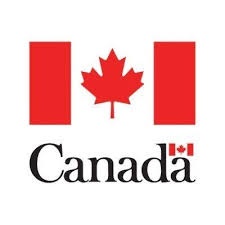
Grant and FundingClosed
Canada Public Transit Fund
Housing, Infrastructure and Communities CanadaSupports long-term public transit and active transportation infrastructure development

Grant and FundingOpen
Active Transportation Fund
Housing, Infrastructure and Communities CanadaSupports infrastructure projects for safer, more accessible active transportation
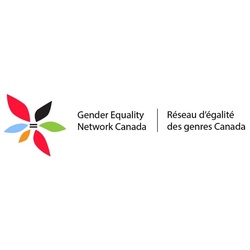
Partnering and CollaborationGrant and Fundingarchived
Equality for Sex, Sexual Orientation, Gender Identity and Expression Program
Women and Gender Equality Canada (WAGE)Supports equality initiatives for sex, sexual orientation, and gender identity

Grant and FundingClosed
Crime Prevention Action Fund (CPAF)
Public Safety Canada (PSC)Supports evidence-based crime prevention initiatives for at-risk communities

Grant and FundingClosed
Substance Use and Addictions Program (SUAP)
Health CanadaSupports innovative projects addressing substance use prevention and treatment
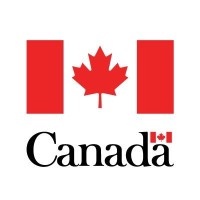
Grant and FundingClosed
Rail Safety Improvement Program (RSIP) - Research and Education Component
Transport CanadaFunding for rail safety infrastructure, research, and education projects

Grant and FundingClosed
Enhanced Road Safety Transfer Payment Program (ERSTPP)
Transport CanadaFunds projects to enhance road safety and reduce traffic injuries

Grant and FundingClosed
Age Well at Home (AWAH) - In-Home Support Pilot Project Stream
Employment and Social Development Canada (ESDC)Supports volunteer-based home services for vulnerable Canadian seniors
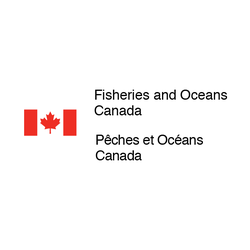
Grant and FundingClosed
Canada Nature Fund for Aquatic Species at Risk (CNFASAR)
Fisheries and Oceans Canada (DFO)Supports recovery and protection of aquatic species at risk
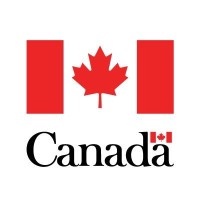
Other SupportGrant and FundingClosed
Artificial Intelligence for Canadian Energy Innovation
Natural Resources Canada (NRCan)Supports AI-driven solutions accelerating Canadian energy technology innovation
Sign up to our platform to access the North American Partnership for Environmental Community Action (NAPECA) information sheet for free
Get access to 4,000+ programs, practical guides, personalized alerts, and an AI assistant to support your grant applications.